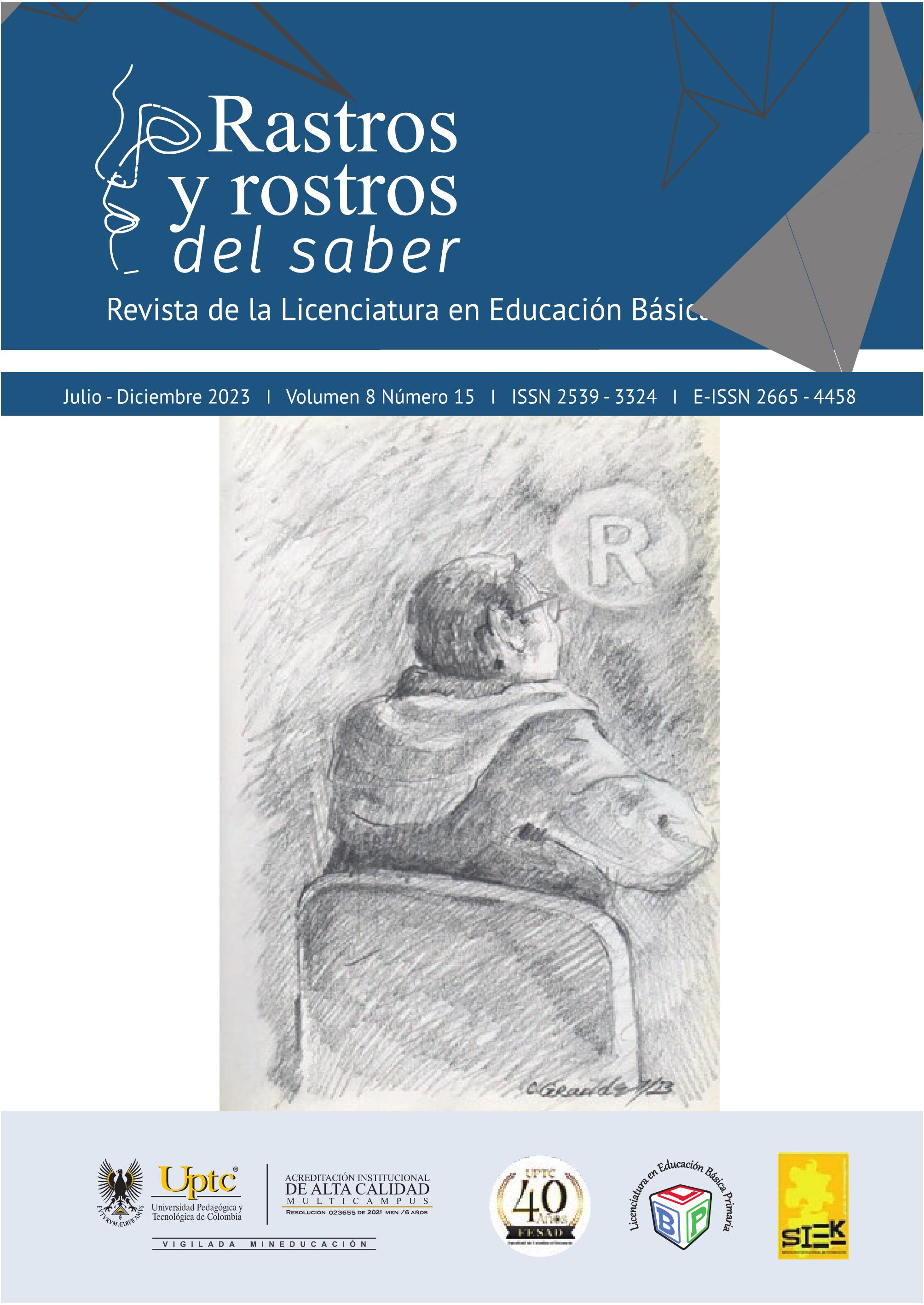Playful-pedagogical proposal for the strengthening of citizenship skills of fifth grade students

Abstract
Introduction: This research was based on the strengthening of citizenship competencies through a ludic-pedagogical proposal, which was structured through a role-playing game, in which different artistic creations and reflections of the students of the fifth grade of primary school of the Departmental Rural Educational Institution El Altico main seat of the municipality of Cogua of the department of Cundinamarca were reflected. Methodology: for this case, reference was made to the qualitative approach, participatory action research, and to finalize the line of research based on educational and social development, which allowed to give a systematic structure between each one of the phases proposed for the development of the research. Results: for this stay, each of the instruments developed in the different phases were taken into account. In the first phase, a diagnosis was made by means of three instruments, two observation instruments and the application of an interview with teachers, from which the students’ deficiencies in citizenship competencies were evidenced. A role-playing game was designed and implemented, which consisted of three moments, in which I worked on personification, empathy, reflection, creativity, communication and companionship. Conclusions: according to the elaboration and implementation process, it was possible to conclude that through the different ludic-pedagogical activities, students exercised cognitive, communicative and emotional competencies related to civic life and generated ideas of what it implies and demands to share a world with other people.
Keywords
Citizenship competencies, playfulness, identity, plurality, valuing of differences
Author Biography
Sofía Senaida Albañil Rodríguez
Licenciada en Básica con Énfasis en Matemáticas, Humanidades y Lengua Castellana.
Yudy Marcela Angulo Fajardo
Licenciada en Básica con Énfasis en Matemáticas, Humanidades y Lengua Castellana.
References
- Alcocer, M. (1998). Investigación acción participativa. En J. Galindo Cáceres (Coord.), Técnicas de investigación en sociedad, cultura y comunicación (pp. 433-461). Pearson Educación Latinoamérica.
- Ando investigando en Cundinamarca. (2014, 21 de noviembre). IED Rural El Altico. http://andoinvestigandoencundinamarca.blogspot.com/2014/11/ied-rural-el-altico.html
- De La Calle, M., Urbina, M. y Salgado, S. (2010). Herramientas para el aprendizaje colaborativo: una aplicación práctica del juego de rol. TESI, 11(3), 277-300. https://revistas.usal.es/index.php/eks/article/view/7463/7479
- Macazaga, A., Rekalde, I. y Vizcarra, M. (2014). La observación como estrategia de investigación para construir contextos de aprendizaje y fomentar procesos participativos. Educación XX1, 17 (1), 199-220. https://www.redalyc.org/articulo.oa?id=70629509009
- MEN. (2003). Estándares básicos de competencias en Leguaje, Matemáticas, Ciencias y Ciudadanas. https://www.mineducacion.gov.co/1621/articles-340021_recurso_1.pdf
- Montoya, P. (4 de agosto de 2015). “En Colombia la violencia ha caído sobre nosotros como un animal hambriento”. Semana. https://www.semana.com/libros/articulo/discurso-pablo-montoya-premio-romulo-gallegos/43477/
- Sampieri, R., Fernández, C. y Baptista, M. (2014). Metodología de la investigación (6.a ed.). McGraw-Gill Education. https://periodicooficial.jalisco.gob.mx/sites/periodicooficial.jalisco.gob.mx/files/metodologia_de_la_investigacion_-_roberto_hernandez_sampieri.pdf